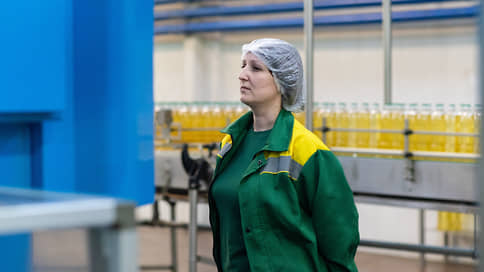“Chistopolye” is looking for a place for sunflowers
[ad_1]

The growth of profitability in the processing of oilseeds stimulates the emergence of new projects in the industry. The construction of the oil extraction plant was planned by the Chistopolye agricultural holding, the son of the Deputy Prime Minister of the Russian Federation Marat Khusnullin, Albert Khusnullin, who manages more than 100 thousand hectares of land and dairy farms in Tatarstan. With limited exports of raw materials, sunflower processors are working with good profitability, but in the long term the situation may worsen, experts say.
Agroholding “Chistopolye” Albert Khusnullin, the son of Deputy Prime Minister of the Russian Federation Marat Khusnullin, plans to engage in the production of vegetable oils in Tatarstan. This follows from the vacancy of the head of the oilseeds processing service published in the holding’s profile on HeadHunter. The candidate is required to know the technology of sunflower, rapeseed and soybean processing, and his duties include organizing the work of an oil extraction plant, storing and shipping products. A Kommersant source in the industry knows that Chistopolye is considering entering this segment, but he did not provide details. In the office of “Chistopolya” “Kommersant” did not answer.
As of mid-2022, Chistopolye included ten agricultural enterprises in Tatarstan, including seven meat and dairy farms, and the total area of agricultural land exceeded 100 thousand hectares. According to the Union of Milk Producers of Tatarstan, in 2022 the holding produced more than 28 thousand tons of raw milk. Chistopolye also grows potatoes and vegetables, the Ministry of Agriculture and Food of the region reported.
The largest oilseed processor in Tatarstan is the Kazan Oil Extraction Plant, which is part of the Nefis group of companies, created by State Duma deputy Irek Boguslavsky. According to its own data, the enterprise can process up to 1 million tons of oilseeds and produce up to 450 thousand tons of vegetable oil per year. And Rusagro Group of Companies has a plant in the neighboring Samara region with a processing capacity of 1.27 thousand tons of oilseeds per day. One of Kommersant’s interlocutors in the market fears that the appearance in Tatarstan of another large vegetable oil production may cause a sharp increase in competition for raw materials and overheat the market.
Although the owner of the corporation “Bio-ton” Eduard Zernin believes that in Tatarstan there may be a niche for the second large oil extraction plant. According to him, Chistopolye is most likely concerned about the prospects for the sale of oilseed crops, so they thought about developing processing. “Our company was in the same situation a few years ago, until the construction of a new plant began in the Samara region,” said Mr. Zernin.
Director General of the Institute for Agricultural Market Studies (IKAR) Dmitry Rylko adds that Tatarstan is located near an agricultural zone where sunflower is the main crop, and rapeseed and flax are also grown. The oil produced in the region, according to him, can theoretically be supplied not only to the domestic market, but also exported along the Volga through the Caspian basin to Iran.
The director of Sovecon, Andrey Sizov, says that after the introduction of a de facto prohibitive duty on sunflower exports, the profitability of processors has increased dramatically, which may be the reason for the emergence of new projects in the industry. Today, the Volga region is the main sunflower producer in Russia, and new facilities around the region should not have problems with the provision of raw materials, he adds. But, Mr. Sizov emphasizes, the current favorable situation for oil refineries is likely to be temporary, as the reduction in farmers’ income from export restrictions will lead to a decrease in sunflower acreage, crop yields and, as a result, an increase in prices for raw materials for processors. According to Sovecon, in the first four months of the current season, a record 2.8 million tons of vegetable oils were produced in Russia against 2.4 million a year earlier.
[ad_2]
Source link





